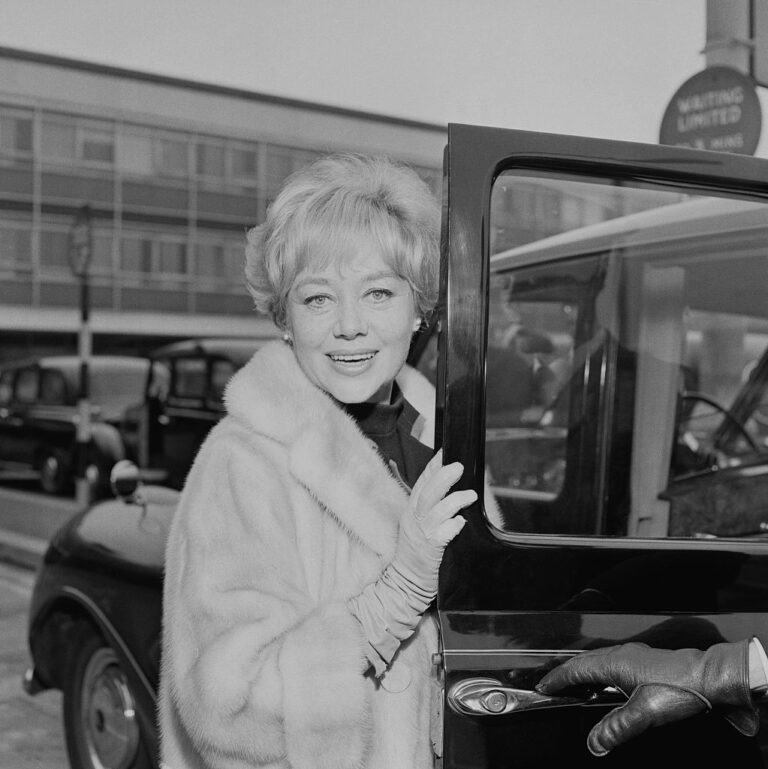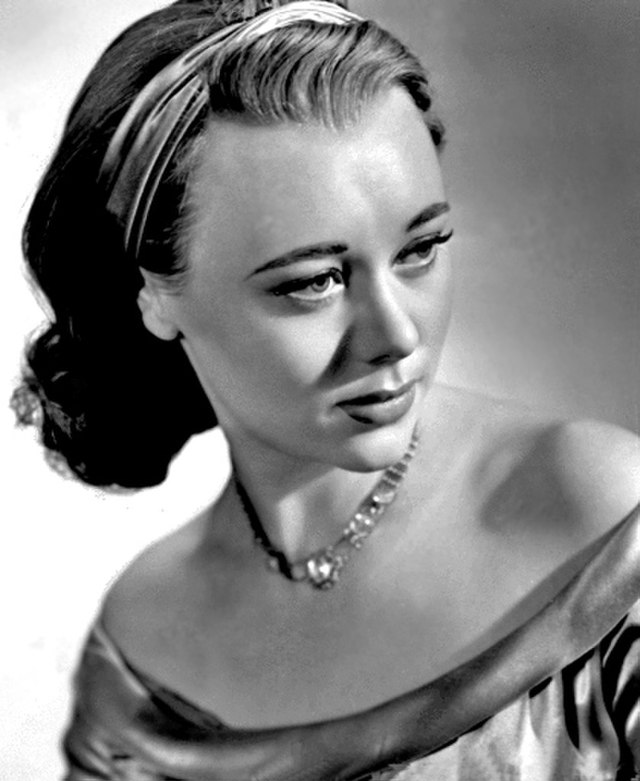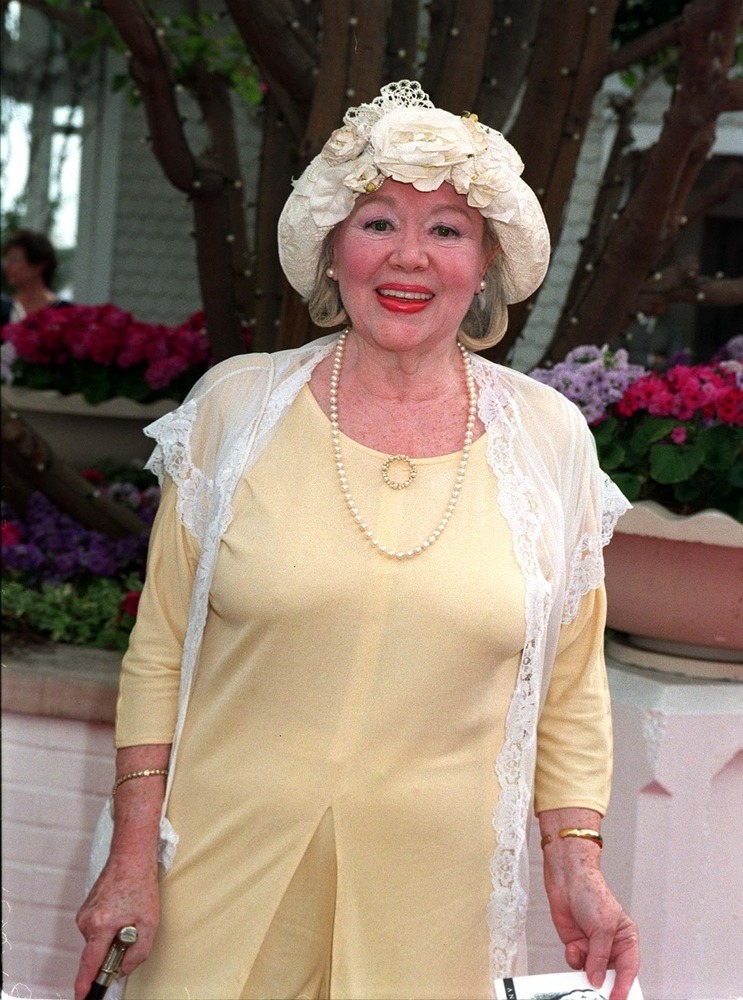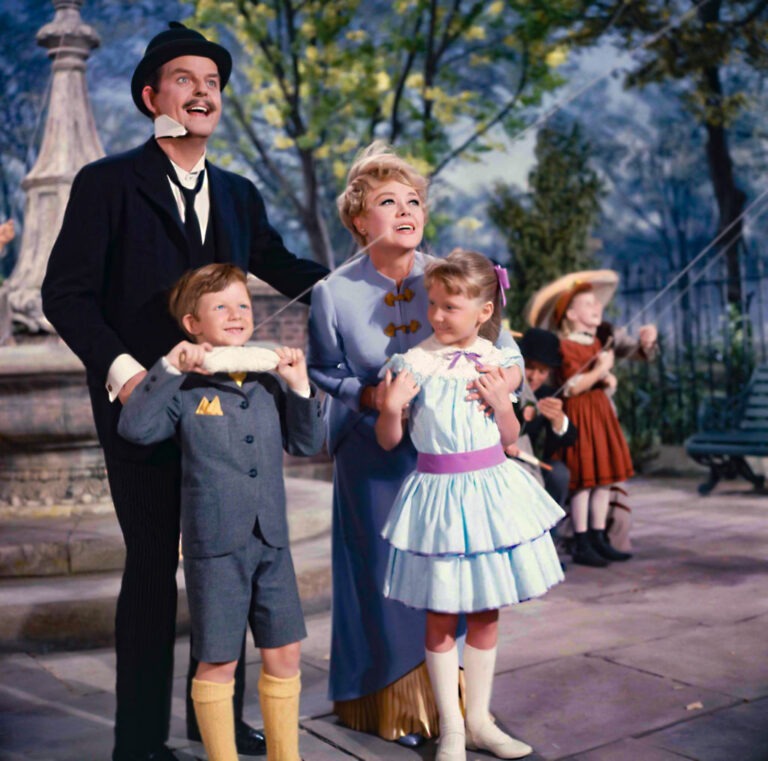Glynis Johns, the Tony-winning actress remembered for playing Mrs. Banks in the classic film Mary Poppins, has died at 100.
A versatile, husky-voiced star whose career spanned eight decades, Johns was one of the last surviving actors of Hollywood’s Golden Age. Johns, who had recently celebrated her 100th birthday, died at an assisted living home in Los Angeles, reportedly of natural causes.

“My heart is heavy today with the passing of my beloved client Glynis Johns,” her manager Mitch Clem told The Guardian. “Glynis powered her way through life with intelligence, wit and a love for performance, affecting millions of lives.”
Johns was born October 5, 1923 in Pretoria, South Africa, the daughter of Welsh actor Mervyn Johns. Raised in England, she began performing at a young age and had early success as a ballet prodigy.

After making her big screen debut in 1938, Johns found success starring in British and American films, including 49th Parallel, The Sword and the Rose, The Court Jester and The Sundowners, for which she earned an Oscar nomination.
Her most iconic film role was in the classic 1964 Disney film Mary Poppins, in which she played the Banks children’s suffragette mother and sang the tune “Sister Suffragette.” The movie was an Oscar-winning smash hit, and Johns received a Laurel Award for her performance.
As a theater actress, Johns’ most iconic performance was in the original cast of Stephen Sondheim musical A Little Night Music, playing the role of Desiree Armfeldt. Johns won the Tony Award for Best Actress in a Musical, and originated one of the best-known and most-covered Broadway showtunes: “Send in the Clowns.”
“Stephen Sondheim composed his most famous song, ‘Send In the Clowns,’ for an actress with virtually no voice, Glynis Johns, and few genuine singers have performed it as effectively,” Anthony Tommasini wrote in a New York Times piece.
A multi-talent star throughout her career, Johns was known as a perfectionist who took her craft seriously.
“As far as I’m concerned, I’m not interested in playing the role on only one level,” Johns said in a 1990 AP interview. “The whole point of first-class acting is to make a reality of it. To be real. And I have to make sense of it in my own mind in order to be real.”
Johns continued acting into the 1990s, in sitcoms like Cheers and films including The Ref, While You Were Sleeping and Superstar, her final screen role.
In recent years, she was known for her impressive longevity: after the death of Olivia De Havilland in 2020, she became Britain’s oldest living stage and screen star, as well as the oldest living Academy Award nominated actor.

As she celebrated her 100th birthday in October, her family campaigned for her to receive Damehood in recognition of her long and iconic career.
“Glynis certainly deserves recognition for her stellar and incredibly enduring career on both stage and screen,” British Labour MP Chris Bryant said. “She bears comparison with some of the greatest actors of her era–I’m thinking of people like Angela Lansbury, Judi Dench, Joan Collins and Maggie Smith.”

Though Glynis Johns never received the honor of damehood as her family hoped for, she will be remembered as a multi-talented icon and one of the last survivors of Hollywood’s Golden Age.
“Her light shined very brightly for 100 years,” her manager told The Guardian. “She had a wit that could stop you in your tracks powered by a heart that loved deeply and purely. Today is a somber day for Hollywood. Not only do we mourn the passing of our dear Glynis, but we mourn the end of the golden age of Hollywood.”
Rest in peace to the late great Glynis Johns, who gave us so many incredible performances over the course of her long career.
Please share this story in memory of Glynis Johns 💔






